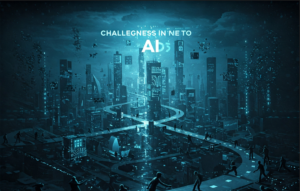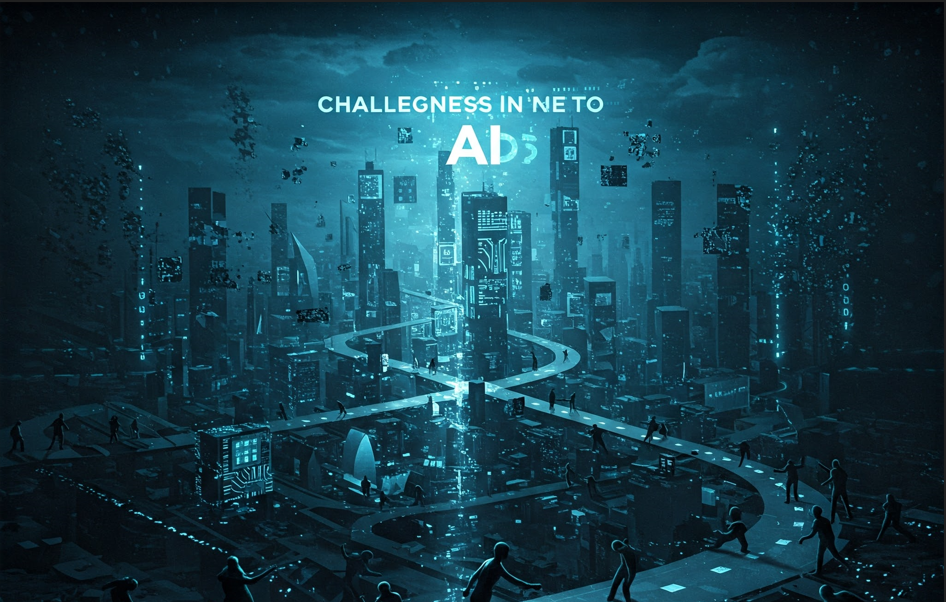
Ethics and Challenges in Artificial Intelligence Development
by Lokesh Patil | Industry Expert

Artificial Intelligence (AI) has the potential to transform the world, but its development and deployment come with significant ethical challenges and dilemmas. From biases in AI systems to data privacy concerns, the rapid advancement of AI technologies necessitates a balanced approach that considers both innovation and responsibility. This article delves into the ethical dilemmas, biases, privacy issues, and the growing need for regulation in AI development, supported by real-world examples.
Ethical Dilemmas in AI Development
One of the most pressing ethical concerns in AI development is the potential misuse of AI technologies. For instance, facial recognition systems, while useful for security purposes, have raised alarm due to their deployment in mass surveillance and their susceptibility to misuse by authoritarian regimes. Such applications infringe on individual privacy and freedom, sparking debates about where to draw the line.
Another dilemma is the ethical use of AI in autonomous weapons. These systems, often referred to as “killer robots,” pose significant risks to global security and have prompted calls for an international ban. The lack of clear guidelines on the acceptable use of AI in military applications exacerbates this issue.
Biases in AI Systems
Bias in AI is a critical challenge that has far-reaching implications. AI systems are only as unbiased as the data they are trained on, and if this data reflects societal prejudices, the AI will perpetuate these biases. For example, studies have shown that facial recognition software is less accurate in identifying individuals with darker skin tones, leading to discriminatory outcomes.
Hiring algorithms have also come under scrutiny for reinforcing gender and racial biases. In one notable case, Amazon abandoned an AI recruiting tool after discovering it discriminated against female candidates, as the algorithm was trained on historical hiring data that reflected male-dominated patterns.
Data Privacy Issues
AI systems often require vast amounts of data to function effectively, raising significant concerns about data privacy and security. The collection and use of personal information without consent have led to numerous controversies. For example, the Cambridge Analytica scandal highlighted how AI-driven data analysis could be exploited to influence political campaigns, undermining democratic processes.
Moreover, AI-powered surveillance systems, such as those used in smart cities, collect massive amounts of data, posing risks of unauthorized access and misuse. Striking a balance between leveraging data for innovation and protecting individual privacy is a growing challenge for policymakers and developers.
The Need for Regulation
To address these ethical challenges, the development of comprehensive AI regulations is imperative. Governments and organizations worldwide are beginning to recognize the importance of establishing frameworks to ensure the responsible use of AI. The European Union’s proposed AI Act aims to regulate high-risk AI systems, mandating transparency, accountability, and fairness.
Industry leaders like Google and Microsoft have also published AI ethics guidelines, emphasizing principles such as fairness, transparency, and accountability. However, the enforcement of these principles remains inconsistent, highlighting the need for global cooperation and standardized regulations.
Real-World Examples Highlighting the Challenges
Real-world examples underscore the importance of addressing these challenges. The use of AI-powered predictive policing tools in the United States has faced criticism for disproportionately targeting minority communities. Similarly, the deployment of AI in hiring and credit scoring has revealed systemic biases that perpetuate inequality.
Conclusion
The ethical challenges in AI development are complex and multifaceted, but addressing them is crucial for ensuring that AI serves humanity’s best interests. By tackling issues such as bias, privacy, and misuse through robust regulations and ethical guidelines, we can harness the transformative power of AI responsibly. As AI continues to evolve, a collaborative approach involving governments, organizations, and developers will be essential to create a future where AI benefits everyone.
Facebook
Twitter
LinkedIn
WhatsApp
Telegram
Email

Related Articles

Subscribe to Newsletter
For latest tech updates, news, trends and opportunities.

